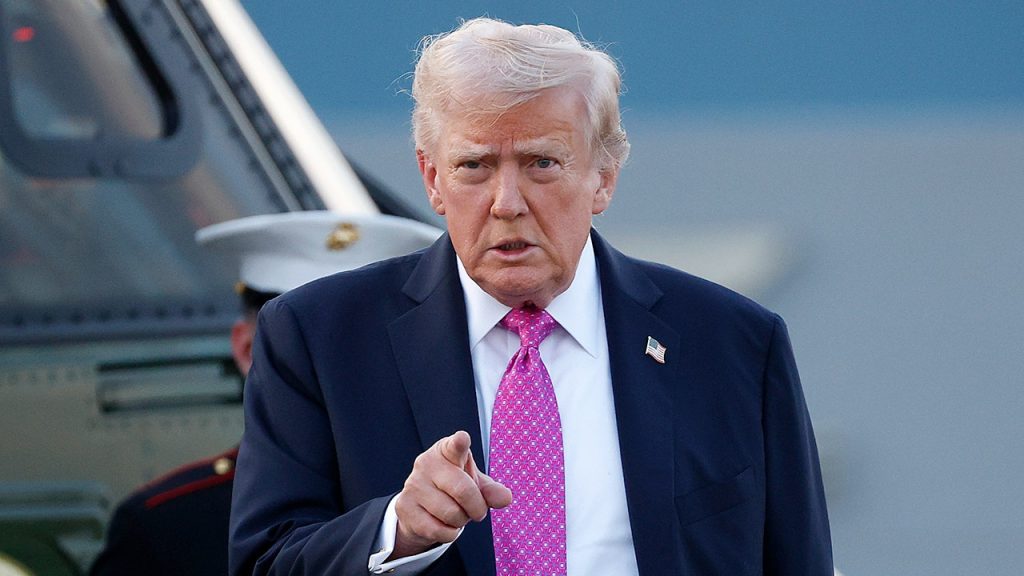Trump Designates Antifa a “Terrorist Organization” to Strong Republican Support
President Donald Trump has announced his intention to designate Antifa as a “major terrorist organization,” garnering immediate and enthusiastic support from House Freedom Caucus members and other Republican lawmakers. In a statement posted on Truth Social, Trump declared Antifa a “sick, dangerous, radical left disaster” and indicated he would recommend thorough investigations into the group’s funding sources. This move represents a significant escalation in the administration’s approach to dealing with what many conservatives have long characterized as a violent extremist movement.
The announcement drew swift praise from Rep. Andy Harris, the Maryland Republican who chairs the influential House Freedom Caucus. Harris endorsed Trump’s decision, describing Antifa as “a dangerous, radical group that thrives on chaos and violence.” He argued that officially labeling them a terrorist organization would enhance community safety and enable authorities to “investigate those who fund them and stop the lawlessness once and for all.” The House Freedom Caucus, once described by critics as “legislative terrorists” but now positioned at the center of Trump’s Washington revolution, amplified Harris’s message along with similar supportive statements from Arizona Representatives Eli Crane and Andy Biggs, who shared screenshots of Trump’s announcement and expressed gratitude for the president’s decision.
Support for Trump’s declaration extended beyond the House Freedom Caucus to include Republican senators as well. Florida Senator Rick Scott praised the move as “100% the right move,” claiming that “Antifa has gotten away with its evils and terrorized cities across our country for far too long.” Utah Senator Mike Lee employed a metaphor in his endorsement, describing Antifa as “a group of arsonists masquerading as firefighters.” The unified Republican response demonstrates how Antifa has become a significant target for conservative politicians who view the loosely organized anti-fascist movement as a threat to public order and safety in American cities.
This isn’t the first time Trump has attempted to designate Antifa as a terrorist organization. During his first term as president, on May 31, 2020, amid nationwide protests following the death of George Floyd, Trump tweeted that “The United States of America will be designating ANTIFA as a Terrorist Organization.” That earlier declaration faced legal challenges and implementation difficulties, partly because Antifa isn’t a centralized organization with formal membership but rather a decentralized movement of individuals united by opposition to fascism and far-right ideologies. Critics at the time questioned whether the president had the authority to designate a domestic group as a terrorist organization, as existing legislation primarily addresses foreign terrorist entities.
The renewed effort to classify Antifa as a terrorist organization comes as Republicans have proposed legislation targeting what they call “anarchist jurisdictions.” Such measures would potentially threaten federal funding for localities deemed insufficiently aggressive in policing protest activities. The broader context includes ongoing debates about political violence, protest movements, and the appropriate response of law enforcement to civil unrest. While conservatives have long focused on Antifa’s tactics at demonstrations, critics of the terrorist designation argue it could be used to suppress legitimate political dissent and protest activities protected by the First Amendment.
As this story continues to develop, questions remain about how such a designation would be implemented and what legal framework would support investigations into Antifa’s funding sources. The White House has not yet provided additional details in response to media inquiries. The designation, if formalized, would represent a significant policy shift in how the federal government approaches domestic political movements and could have far-reaching implications for civil liberties and law enforcement priorities in the United States. Meanwhile, the strong support from Republican lawmakers indicates that addressing Antifa will likely remain a central focus of conservative policy efforts moving forward.


